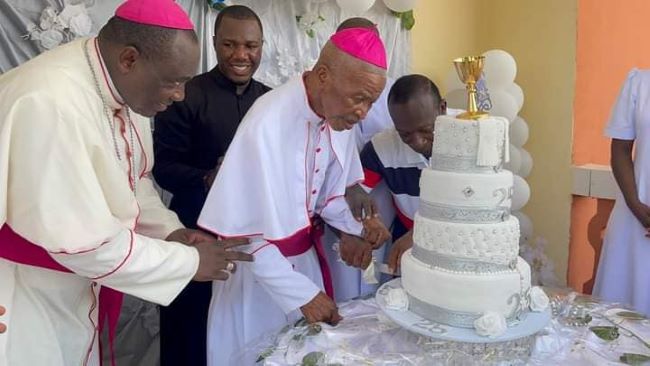Categories
Archives
- April 2024
- March 2024
- February 2024
- January 2024
- December 2023
- November 2023
- October 2023
- September 2023
- August 2023
- July 2023
- June 2023
- May 2023
- April 2023
- March 2023
- February 2023
- January 2023
- December 2022
- November 2022
- October 2022
- September 2022
- August 2022
- July 2022
- June 2022
- May 2022
- April 2022
- March 2022
- February 2022
- January 2022
- December 2021
- November 2021
- October 2021
- September 2021
- August 2021
- July 2021
- June 2021
- May 2021
- April 2021
- March 2021
- February 2021
- January 2021
- December 2020
- November 2020
- October 2020
- September 2020
- August 2020
- July 2020
- June 2020
- May 2020
- April 2020
- March 2020
- February 2020
- January 2020
- December 2019
- November 2019
- October 2019
- September 2019
- August 2019
- July 2019
- June 2019
- May 2019
- April 2019
- March 2019
- February 2019
- January 2019
- December 2018
- November 2018
- October 2018
- September 2018
- August 2018
- July 2018
- June 2018
- May 2018
- April 2018
- March 2018
- February 2018
- January 2018
- December 2017
- November 2017
- October 2017
- September 2017
- August 2017
- July 2017
- June 2017
- May 2017
- April 2017
- March 2017
- February 2017
- January 2017
- December 2016
- November 2016
- October 2016
- September 2016
- August 2016
- July 2016
- June 2016
Featured
 Bishop Francis T. Lysinge @ 25!
Bishop Francis T. Lysinge @ 25!  Understanding the Biya Francophone regime’s support for the Israeli genocide in Gaza
Understanding the Biya Francophone regime’s support for the Israeli genocide in Gaza  Poverty under Biya: Cameroonians embrace Chinese language for brighter futures
Poverty under Biya: Cameroonians embrace Chinese language for brighter futures  Cameroon is broken: Who can fix it?
Cameroon is broken: Who can fix it?  Ethiopia: U.S Senator Cardin Statement on the Killing of Bate Urgessa
Ethiopia: U.S Senator Cardin Statement on the Killing of Bate Urgessa
Most Commented Posts
 4 Anglophone detainees killed in Yaounde
4 Anglophone detainees killed in Yaounde
19 comments Chantal Biya says she will return to Cameroon if General Ivo Yenwo, Martin Belinga Eboutou and Ferdinand Ngoh Ngoh are sacked
Chantal Biya says she will return to Cameroon if General Ivo Yenwo, Martin Belinga Eboutou and Ferdinand Ngoh Ngoh are sacked
13 comments Anglophone Nationalism: Barrister Eyambe says “hidden plans are at work”
Anglophone Nationalism: Barrister Eyambe says “hidden plans are at work”
12 comments The Anglophone Problem – When Facts don’t Lie
The Anglophone Problem – When Facts don’t Lie
12 comments Largest wave of arrest by BIR in Bamenda
Largest wave of arrest by BIR in Bamenda
10 comments
Latest Tweets
Featured
-

Bishop Francis T. Lysinge @ 25!
-

10 Million Cameroonians lived on less than $1.80 per day
-

Football: Xavi to remain as Barcelona coach
-

Biya regime delays bond sale amid regional market strain
-

Historic agreement between Nigeria and Cameroon to tackle wildlife crime
-

Southern Cameroons refugees in Nigeria receive farm seedlings
-

Douala: Investment Forum wraps up with honors for investment champions
© Cameroon Concord News 2024
10, June 2020
For many African Americans, nothing has changed since civil rights movement 0
For three generations, black Americans have learned the same cautionary tale about the police. And many, speaking on the fringes of George Floyd’s memorial ceremonies, say that nothing has changed in the US since the mid-20th century struggle for civil rights.
“Some things have changed, but not enough has changed,” Norman Mitchell told AFP during a memorial service for Floyd at his former school, Jack Yates High, in Houston’s predominantly black Third Ward neighborhood.
He acknowledged political advances made for the African American community, such as the election of Barack Obama as the first black president in the history of the US, but at the same time recounted the discrimination he and his children continue to face because of the color of their skin.
“It took an individual kneeling on someone’s neck for eight minutes, 46 seconds for the world to see the issue that we’ve been fighting for the last 100 years,” said the 55-year-old.
“When I was a young man, my father used to tell me to be very careful when I went out because there was a possibility that I could be stopped by the police,” Mitchell added.
He said he “had this exact same conversation with” his sons, whose ages range from 17 to 32.
Floyd’s agony as a white police officer knelt on his neck in a Minneapolis street hit Mitchell’s youngest son particularly hard. He “did not think it was real until May 25, and he knew the stories we had been sharing for years,” Mitchell said, whose own brother was killed by a Houston police officer in 1991.
At 63 years old, Laura Allen was a child when marches and protests against police brutality started in the Texan city’s streets.
“I was three or four years old with my family down (in) the streets, and we’re having to march for the same civil rights that we did years ago,” she said.
“Not much has changed at all.”
The former Yates student — class of 1975 — slammed the inequality and “double standard” of police policies in Houston, where “almost every black male I know have been profiled.”
– Scared of cops –
Like many others, Allen has countless stories of arbitrary arrests and intimidation. In 1980, she was detained by park police “for carrying a glass.”
This year, she was pulled over during a trip to Alabama with her husband and daughter.
“As soon as we crossed the Alabama border, we were instantly stopped. They ask, ‘Is this your car?'” recalled the small, gray-haired woman.
Just as her father brought her to protests, so Allen accompanied her daughter, Leah, last week to a massive rally in Houston, where 70,000 people demanded justice for Floyd.
At 28, Leah Allen has the same distrust of police officers as her mother, since “you never know what could happen.”
“I’m very scared of cops,” she said, recounting how police officers have followed her or leered sexually at her.
Tragedy can strike at any moment. Syreeta Polley, 38, points to the death in 2016 of black motorist Philando Castile, who was shot by a police officer during a traffic stop near Saint Paul, Minnesota.
As with Floyd, his shocking final moments were caught on video.
Polley has taught her teenage daughter, Nia Madison, to “respect authority figures” and be “cautious.”
The 17-year-old has started driving, and the lesson is clear: “Make sure you’re prepared if you’re being pulled over,” said Polley.
“It’s 2020 and it’s a big step back, it pushes us back to the 50s and 60s and the stories my 92-year-old grandmother would tell,” Polley added.
Even the Houston police chief, Art Acevedo, admitted that “there is a lot of work to do” to change the police force’s mindset.
Houston-based rapper William James Dennis — or “Willie D” — hopes that Floyd’s death will serve as a catalyst.
The black community “can use (the death of George Floyd) as a short window of opportunity to move America forward,” the artist and activist told AFP on Tuesday, during Floyd’s funeral.
Source: AFP